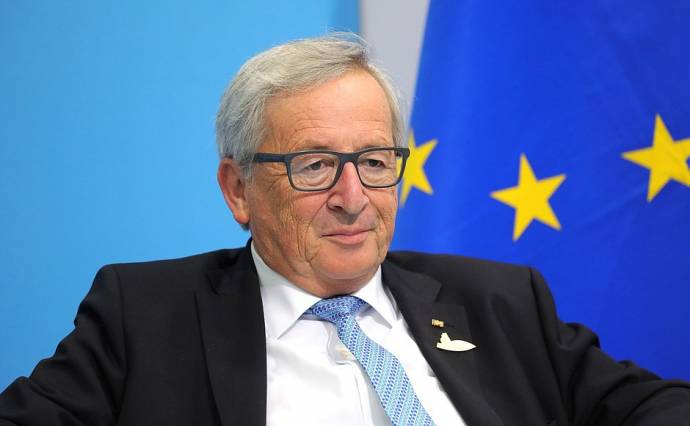Brussels, 8 January, 2018 - The STA reports that European Commission President Jean-Claude Juncker said ahead of a meeting with President Borut Pahor in Brussels on Monday that the border issue between Slovenia and Croatia was not only a bilateral issue, but one that affected the entire EU and the European future of the Western Balkans.
Thus, the Commission is proposing its mediation to the two sides, if they so desire, Juncker added, while not clarifying the Commission's role in any detail.
According to him, the first step will be getting the two sides together. He feels the differences are not all that big.
Juncker repeated the Commission's position that the arbitration decision, adopted last June but ignored by Croatia, needed to be respected and again urged against incidents.
He said he would not ever wish a similar scenarios to repeat and that the remaining open issues in the Western Balkans needed to be resolved before the countries of the region entered the EU.
Asked whether he agreed with Slovenia's position that Croatia is violating EU law by rejecting the arbitration award, Juncker said that simple questions did not always have simple answers.
Meanwhile, Pahor called for a more active role of the Commission in the efforts to implement the arbitration award. He argued this was the Commission's political, legal and moral duty and that the credibility of the EU was at stake.
Pahor, who picked Brussels for his first foreign visit after getting a second term as president, said he was coming to Juncker with a few ideas on how the Commission could help, but he would not disclose any details.
Pahor tweeted after the meeting that it "brought some progress in terms of the understanding of the responsibility and role of the European Commission in the implementation of the border arbitration decision".
Pahor, who also met European Council President Donald Tusk today, stressed that Juncker, Tusk and him had all signed Croatia's EU accession treaty as the prime ministers of their respective countries.
The arbitration agreement enabled Croatia to become an EU member, he added, arguing that by rejecting the award Croatia was violating its own accession treaty as well as international and European law.
Pahor noted that delaying implementation could provide a platform for political forces that sought their opportunities in encouraging nationalism.
He urged the Commission to promptly make the first step and let Croatia know it meant business when saying it expected implementation.






